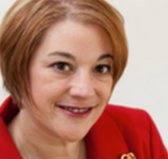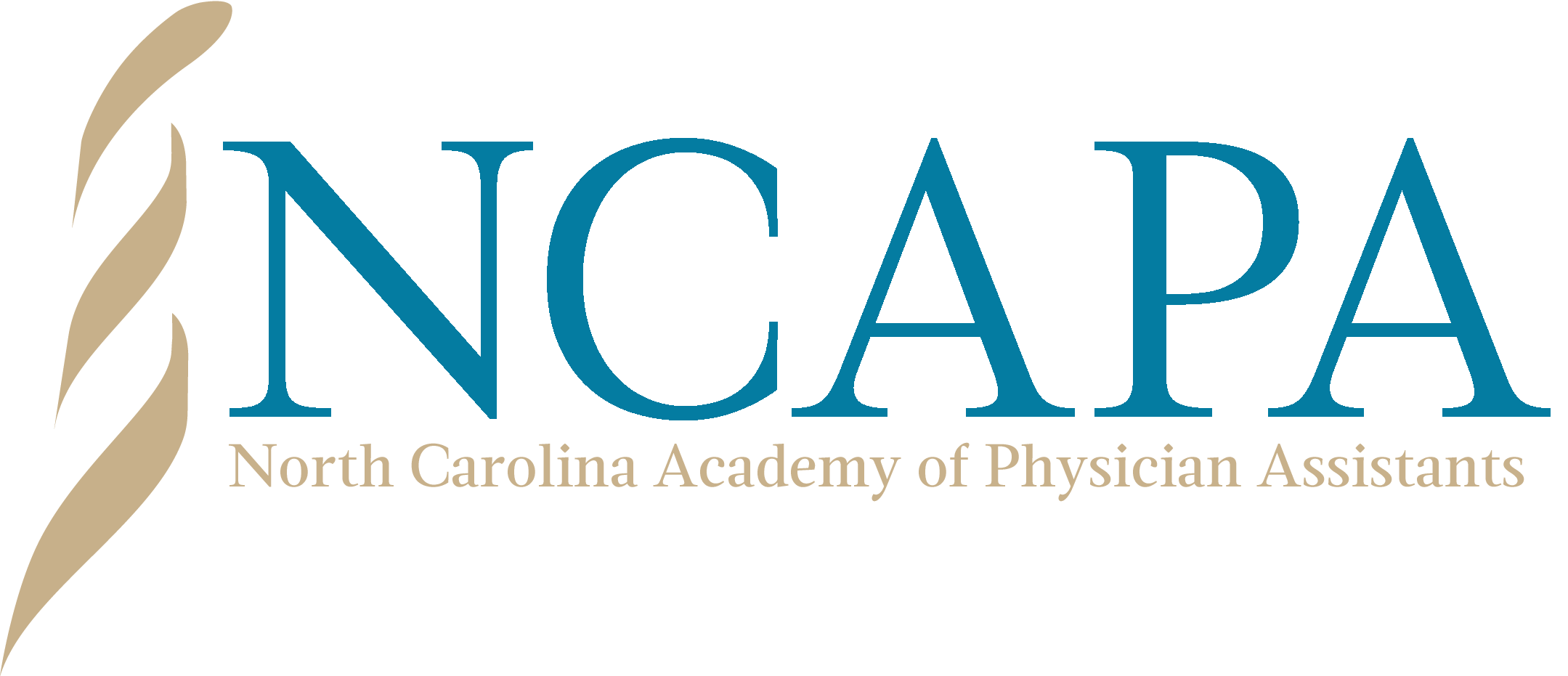“It takes a team to raise a patient. We all do our good parts to improve health, and PAs can give great care, they can diagnose and treat, and can be very independent in their healthcare delivery.”
Lisa Shock, DrPH, MHS, PA-C

For August’s Member Highlight Interview, the North Carolina Academy of Physician Assistants (NCAPA) sat down with NCAPA Past President and current Chief Population Health Officer of UnitedHealthcare’s Managed Medicaid Plan in NC, Lisa Shock, DrPH, MHS, PA-C.
Shock is a Duke University PA Program graduate with a doctorate of Global Public Health from UNC-Chapel Hill. She has been a NCAPA Member since she was a Duke PA student. She was also the Academy president at the time when the NCAPA Headquarters, the Eugene Stead Center, was built in Durham, NC.
Currently, she is the Chief Population Health Officer for UnitedHealthcare’s managed Medicaid plan in NC, serving over 400,000 members prior to expansion. Lisa stated, “I still practice clinically in primary care and urgent care. I am a geriatrician at heart, with over two decades of work within nursing homes.” She has also held numerous leadership roles, stating, “I am a current Public Health commissioner, and I have served two terms on the Institute of Medicine board. I am the co-chair for the NCMS Policy Committee, which also includes two other PAs. I was also the first PA to be appointed to the North Carolina Institute of Medicine Board.”
The NCAPA started off by asking Lisa how first got interested in the PA profession. “I was a neuroscience major and a sociology/anthropology minor at Colgate University for my undergrad,” she said. “I moved down to North Carolina for my first job doing research after college, and it was during that time that I found out about the PA profession. I was fortunate to meet with the admissions office of the Duke PA Program, shadow PAs in the community and realized that I could do what I wanted to do for patients, which was diagnose and treat. I got accepted to the Duke Program and started practice in rural North Carolina in an underserved county.”
Lisa stated she currently works as an executive leader in population health and value-based care. “In the traditional health care system, we do something to or for the patient, and we get paid for it,” she explained. “I describe value-based care and population health as ‘less care, more health.’ For example, for a diabetic patient, it’s the right thing to do and very evidence-based to check their feet, get an eye exam, check their A1C, their blood pressure – all of those are also quality metrics which can measure health outcomes and increase provider incentive revenues. In a value-based contract, you get paid for your particular CPT codes and billing as you normally do in a clinical environment, but you also get rewarded for giving high quality care. So, if you are a clinician in a value-based contract, you will get paid for doing the regular tasks and functions, but you also will get incentivized for good health.”
“It also takes a team to raise a patient,” she said, shifting gears to discussing team-based care in all settings. “We all do our good parts to improve health, and PAs can give great care. They can diagnose and treat and can be very independent in their healthcare delivery. I think we can always do more to increase public advocacy around this.”
Lisa also shared her thoughts on public advocacy: “You know, I look at the landscape now and the competitive forces that are driving our market. We should not be ashamed of the good outcomes that we know we are capable of and have evidence to prove in the literature. I think it’s important to recognize achievements and important advancements with the profession.” When asked on her thoughts on where she would like to see the profession five years from now, Lisa stated, “I hope we will be successful on the advocacy front. I would like to see our advocacy increase and we need to continue to be very visible and vocal at all levels.”
When we asked her on how she first got started in PA advocacy, she smiled fondly, crediting the relationships she had with her mentors that inspired her to lean into the advocacy space. “I had the blessing and fortune in my very first rural medicine practice to work with Lanny Parker, PA-C. He was really the one that mentored me, and he said to me, ‘Don’t be the PA that just goes to work and comes home. Go out and do something, join something.’ And that really stuck with me.”
Upon discussing her own time mentoring PA students, she advises that student members can remain involved in the Academy even after graduating. How? “I think that really gets back to Advocacy. It’s important to recognize that, even if you don’t have the time or capacity because of where you are in your life, either with little kids or other factors and commitments, paying those dues really matters. That’s where the political action committee and campaign donations come into play,” Lisa said. “Some of our successes at the legislature are from that funding and those relationships that have been fostered and grown over the years.”
“Also, I think no matter what state you practice in, being a Student Member/Member is really important,” she continued. “Even if you can only contribute dues for a couple of years, contribute with your time. You will learn a ton, even with those seemingly small advocacy efforts, that end up building into big milestones.”
With all of her leadership roles and extensive accolades and accomplishments, the NCAPA asked Lisa what she likes to do in her free time, aside from being a PA. “I love contributing my time as a public health commissioner as well as devoting time to environmental issues, and more,” Lisa said. “My husband and I have two daughters, one who is 21 years old, and one who is 15 years old. My oldest is a dancer, and my younger one loves to rock climb and play volleyball. If I’m out of the office, I’m most likely somewhere with the kids, or reading and writing.”
Thank you, Lisa, for all that you have done to advance and progress our PA profession!

